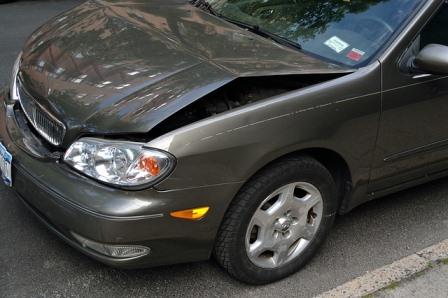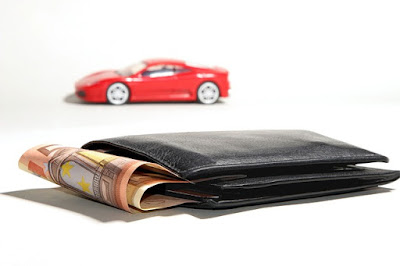
A Quick Guide To Mortgage For Beginners
One of the most important financial decisions you'll ever take is getting a mortgage. It's one of the biggest financial commitments. Most people make alongside private school fees to their children if they're lucky enough to be able to afford them. So what is a mortgage? That's what we'll cover in this article and what do some of the key bits of jargon plus little over the newspapers actually mean?
Right, a mortgage is a secured loan that makes it different from a loan that you might take out. For example unsecured to buy a car or just simply by racking up credit card debt or using a store card. Those are unsecured. All right, now the difference is very simple a secured loan a mortgage. Here's the deal. You go to a bank say I want to borrow a hundred thousand pounds for argument's sake the bank says that's fine Tim. But we want the loan secured on an asset being the house you plan to buy. A deal is simple and it's a two-sided deal. In return for that security, the bank will offer you a low-interest rate much lower than on say a car loan or a credit card or a store car loan.
You can pick up mortgage rates for around 4 percent for 5 percent at the moment depending on the period you go for where the unsecured store card loans could cost you up to 30. So that's the upside. The interest rate is low. But that's because the load is secured and that means if you fail to repay it or keep up with repayments the bank reserves the right to seize your property and sell it and use the proceeds to repay the loan.
So a mortgage has one benefit upfront the interest rate tends to be a lot lower. You can get other loans and that's because the bank has a lot of security in the form of your property. Now property prices can go down as well as up which is why banks don't always lend or certainly not anymore the full value of the property to somebody who wants a mortgage. The heady days, the ridiculous days before the financial crisis are now long gone. So that brings me on to my first piece of jargon relate two mortgages loan to value LTV. Now if you see that what does that mean and what practical consequence, does it have for you trying to get a mortgage well?
Here's how it works. Let's say that the value of the house on the open market is 100,000 pounds. You plan to put down a 30,000-pound deposit. Lucky you and that means you need a 70 thousand pound alone or mortgage. Now how do I know you put down an xxx half and deposit? Well, maybe you can't afford a 30,000-pound deposit. The deposit is down to what you can manage to scrimp and save together. Okay, persuade parents or friends to give you whatever happens to be so you've got a deposit from somewhere. The rest is the mortgage.
So a combination of what's called equity. That's your bit and a loan from a bank secured on the property makes up the funding for the hundred thousand pound property. Now here the LTV as you'll sometimes see it quoting the press put a jargon there. The loan to value ratio is simply that compared to that as a percentage. So here the LTV 70,000 as a proportion of the value of the property. Literally, our loan to value ratio is 70%.
In simple terms basically, the higher that is the harder it is to get the loan. Back in the ridiculous day's pre-financial crisis. There are banks around that would say no problem you can have LTVs of more than one hundred percent one hundred and twenty-five percent. You can actually borrow more or than the value of the property from a bank I'd even give you hints and tips as to what to do with the extra. So, on a hundred thousand pound property, this may sound a little mad. But it was happening you could borrow one hundred and twenty-five thousand pounds. I'm not kidding your bank website saying things like well book yourself a holiday buy a car with the extra, now that is madness.
I'll cover just now but here's my take away. The higher the loan-to-value ratio naturally the higher the interest rate and the heart of the mortgage will be to come across. So if you can scrimp together as much of the deposit as you can get hold of bring down the loan-to-value ratio. But tend to find that better deals and become available.
Right, a mortgage is a secured loan that makes it different from a loan that you might take out. For example unsecured to buy a car or just simply by racking up credit card debt or using a store card. Those are unsecured. All right, now the difference is very simple a secured loan a mortgage. Here's the deal. You go to a bank say I want to borrow a hundred thousand pounds for argument's sake the bank says that's fine Tim. But we want the loan secured on an asset being the house you plan to buy. A deal is simple and it's a two-sided deal. In return for that security, the bank will offer you a low-interest rate much lower than on say a car loan or a credit card or a store car loan.
You can pick up mortgage rates for around 4 percent for 5 percent at the moment depending on the period you go for where the unsecured store card loans could cost you up to 30. So that's the upside. The interest rate is low. But that's because the load is secured and that means if you fail to repay it or keep up with repayments the bank reserves the right to seize your property and sell it and use the proceeds to repay the loan.
So a mortgage has one benefit upfront the interest rate tends to be a lot lower. You can get other loans and that's because the bank has a lot of security in the form of your property. Now property prices can go down as well as up which is why banks don't always lend or certainly not anymore the full value of the property to somebody who wants a mortgage. The heady days, the ridiculous days before the financial crisis are now long gone. So that brings me on to my first piece of jargon relate two mortgages loan to value LTV. Now if you see that what does that mean and what practical consequence, does it have for you trying to get a mortgage well?
Here's how it works. Let's say that the value of the house on the open market is 100,000 pounds. You plan to put down a 30,000-pound deposit. Lucky you and that means you need a 70 thousand pound alone or mortgage. Now how do I know you put down an xxx half and deposit? Well, maybe you can't afford a 30,000-pound deposit. The deposit is down to what you can manage to scrimp and save together. Okay, persuade parents or friends to give you whatever happens to be so you've got a deposit from somewhere. The rest is the mortgage.
So a combination of what's called equity. That's your bit and a loan from a bank secured on the property makes up the funding for the hundred thousand pound property. Now here the LTV as you'll sometimes see it quoting the press put a jargon there. The loan to value ratio is simply that compared to that as a percentage. So here the LTV 70,000 as a proportion of the value of the property. Literally, our loan to value ratio is 70%.
In simple terms basically, the higher that is the harder it is to get the loan. Back in the ridiculous day's pre-financial crisis. There are banks around that would say no problem you can have LTVs of more than one hundred percent one hundred and twenty-five percent. You can actually borrow more or than the value of the property from a bank I'd even give you hints and tips as to what to do with the extra. So, on a hundred thousand pound property, this may sound a little mad. But it was happening you could borrow one hundred and twenty-five thousand pounds. I'm not kidding your bank website saying things like well book yourself a holiday buy a car with the extra, now that is madness.
I'll cover just now but here's my take away. The higher the loan-to-value ratio naturally the higher the interest rate and the heart of the mortgage will be to come across. So if you can scrimp together as much of the deposit as you can get hold of bring down the loan-to-value ratio. But tend to find that better deals and become available.


















